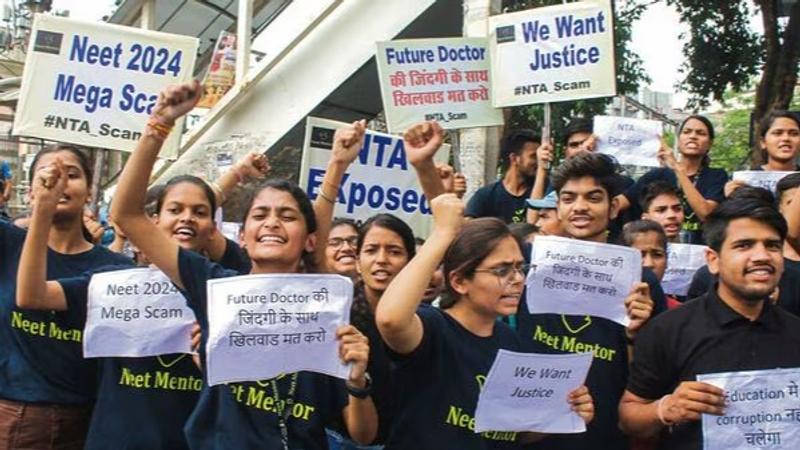Published 09:16 IST, June 22nd 2024
Amid NEET, UGC-NET Row, Centre Notifies New Law Against Paper Leak | 5 Points
Public Examinations (Prevention of Unfair Means) Act, 2024 aims at curbing malpractices and irregularities in competitive examinations.

Students protest over the alleged irregularities in NEET-UG 2024 | Image:
PTI/File
- Listen to this article
- 3 min read
Advertisement
08:57 IST, June 22nd 2024




